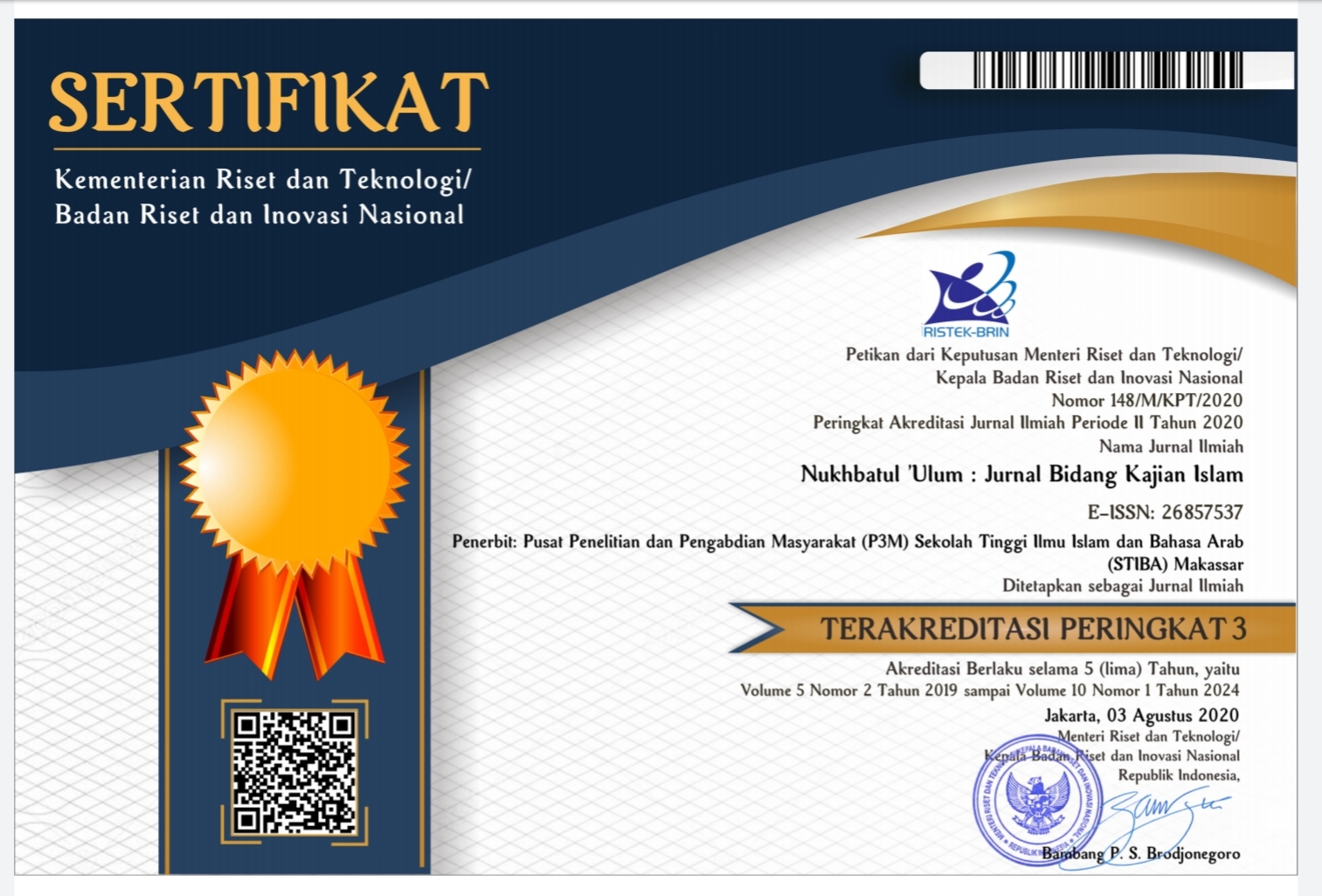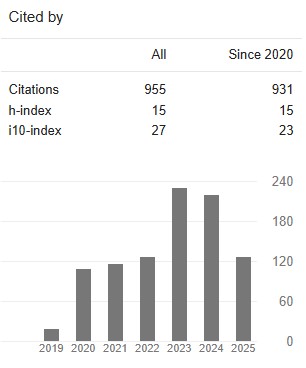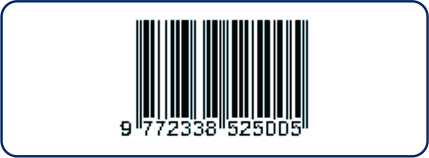Analysis of Abu Yusuf's Thoughts on Tax Revenue in the Book of al-Kharāj and Its Relevance to Contemporary Tax Law Principles: A Fiqh Perspective
DOI:
https://doi.org/10.36701/nukhbah.v10i2.1768Keywords:
Abu Yusuf, al-Kharāj, taxationAbstract
This article aims to analyze the differences of opinion among scholars regarding the legal imposition of obligations on the public by the Islamic state other than zakat. The main focus of this article is on the views of Abu Yusuf, a prominent scholar during the Abbasid era, whose famous work al-Kharāj made a significant contribution to the development of the tax system in the Islamic state, as well as its relevance to contemporary tax law principles. In addition, the article examines the criteria for tax collection based on the perspective of fiqh. This study employs a qualitative approach using normative juridical and descriptive-analytical methods. The findings reveal that Abu Yusuf, through al-Kharāj, recognized the imposition of taxes by the state in addition to zakat, such as jizyah (a tax levied on non-Muslim citizens), ‘usyr (a tithe, typically one-tenth of agricultural produce), and kharāj (a land tax on agricultural lands). During the time of Prophet Muhammad PBUH there were no established regulations regarding kharāj and ‘usyr. The implementation of these two taxes began during the era of ‘Umar bin al-Khaṭṭāb RA, following the conquest of Persian territories, particularly the fertile region of Sawad in Iraq, where kharāj was imposed on land and ‘usyr was levied on non-Muslim traders entering Islamic territories. The conclusion of this study is that the imposition of taxes other than zakat is recognized in fiqh, provided it meets specific criteria, including a real and urgent need, fair and prudent implementation, allocation of tax revenue for public interest, and consultation between the leader and experts prior to tax imposition. The practical implication of this study is that the application of taxes in accordance with fiqh criteria can serve as an additional source of revenue for Islamic states to develop infrastructure and improve social welfare, particularly in efforts to alleviate poverty.
Downloads
References
’Umair, Rafiḍah. “Al-Ḍaribah Wa Ḍawābiṭuhā Fī Al-Fiqh Al-Islām.” University of Ghardaia, 2021.
Abdillah, Riva, Yadi Janwari, and Dedah Jubaedah. “KONSEP PEMIKIRAN ABU YUSUF DALAM MANAJEMEN KEUANGAN NEGARA.” Jurnal Sebi 4, no. 2 (2022): 40–51.
Al- Ghazali, Muhammad bin Muhammad. Al-Mustashfá Min ’Ilm Al-Uṣūl. 1st ed. Madinah: Sharikat al-Madīnah al-Munawwarah liṭ-Ṭibā’ah, n.d.
Al-Azdī, Abū Dāwūd Sulaimān bin Asy’ats bin Isḥāq bin Baysīr. Sunan Abī Dāwūd,. Kitab Hadis. 1st ed. Beirut: Dār al-Risālah al-‘Ilmiyyah, 2009.
Al-Bukhārī, Muhammad bin Ismāʿīl. Ṣaḥīḥ Al-Bukhārī. Beirut: Dar Ibn Kaṡīr, 1987.
Al-Burnū, Muḥammad Ṣidqī bin Aḥmad. Kasyf Al-Sātir Syarḥ Ghawāmiḍ Rawḍat Al-Nāẓir. Muʾassasah al-Risālah, n.d.
Al-Ḥajjāj, Muslim ibn. Ṣaḥīḥ Muslim. 1st ed. Vol. 2. Riyadh: Dār Ṭayyibah, 2006.
Al-Jaṣṣāṣ, Abū Bakr. Aḥkām Al-Qurʾān. Libanon: Dar al-Kutub al-Ilmiyah, n.d.
Al-Mawardi, Ali bin Muhammad. Al-Aḥkām Al-Sulṭāniyyah. Kairo: Dār al-Ḥadīṡ, 2006.
Al-Naijiri, Abdullah bin Abi Bakr. “Mafhūm Al-Kharāj Fī Al-Fiqh Al-Islāmī.” Al-Majallah Al-Akādīmiyyah Li-l-Abḥāṡ Wa Al-Nayr Al-‘Ilmī 23, no. 1 (2021).
Al-Salām, Iyāḍ bin Namī. Uṣūl Al-Fiqh Allaẓī Lā Yasāʾu Al-Faqīh Jahlahu. 1st ed. Riyadh: Dar al-Tadmuriyyah, 2005.
Aravik, Havis. “Kontribusi Pemikiran Ekonomi Abu Yusuf Terhadap Perkembangan Ekonomi Islam Modern.” Economica Sharia 2, no. 1 (2016): 29–38.
Bakir, Ach, and Mustofa. “Pemikiran Abu Yusuf Tentang Pajak Dan Relevansinya Dengan Kebijakan Ekonomi Di Indonesia.” Jurnal Ilmiah Ekonomi Islam 9, no. 01 (2023): 371–77. http://dx.doi.org/10.29040/jiei.v9i1.7824DOI:http://dx.doi.org/10.29040/jiei.v9i1.7824.
Bawazir, Muhammad Alfin. “OPTIMALISASI PAJAK DAN ZAKAT PADA KEBIJAKAN FISKAL KHALIFAH UMAR BIN ABDUL AZIZ (99-101 H/717-719 M).” IAIN Purwoketo, 2021.
Gazali. “Pajak Dalam Perspektif Hukum Islam Dan Hukum Positif.” Muamalt: Jurnal Kajian Hukum Ekonomi Syariah 7, no. 1 (2015): 84–102. https://journal.uinmataram.ac.id/index.php/muamalat/article/view/1171.
Ikbal, M, M Ridwan, and Khusnudin. “Studi Komparatif Makro Ekonomi Pemikiran Cendikiawan Muslim Klasik Dan Kontemporer (Abu Ubaid, Abu Yusuf, Yahya Bin Adam, Muhammad Abdul Manan, Dan M ….” Jurnal Ilmiah Ekonomi Islam 9, no. 01 (2023): 1290–95. https://jurnal.stie-aas.ac.id/index.php/jei/article/view/7044.
Irwan, Afifah, and Hana Tuo. “Analisis Konsep Pajak Dalam Kitab Al-kharāj Abu Yusuf: Implementasi Pada Sistem Perpajakan Kontemporer.” Jurnal Ekonomi Dan Bisnis Digital 2, no. 1 (2024): 333–39.
Isma, Andika, Della Fadhilatunisa, Annisa Nabilah Hasan, Yunita Afira Liadi, and Sulfa Inriani. “‘USYUR SEBAGAI KEBIJAKAN FISKAL PADA MASA KEKHALIFAHAN UMAR BIN KHATTAB.” In Prosiding Seminar Nasional Dies Natalis UNM Ke 62, 706–14. Makassar: Universitas Negeri Makassar, 2023. https://journal.unm.ac.id/index.php/Semnasdies62/article/view/1189.
Ismayadie, Muhammad. “KONSEP PEMIKIRAN ABU YUSUF DALAM MANAJEMEN KEUANGAN NEGARA.” Equity: Jurnal Ekonomi 7, no. 2 (2019): 12–24. doi:https://doi.org/10.33019/equity.v7i2.5.
Janwari, Yadi. Pemikiran Ekonomi Islam Dari Masa Rasulallah Hingga Masa Kontemporer. 1st ed. Bandung Bart: PT Remaja Rosdakarya, 2016.
Kamilulloh, Farhan, Sugantina Ridha, Aminuddin Aminuddin, and Prio Ambardi. “REFLEKSI PEMIKIRAN EKONOMI ISLAM ABU YUSUF.” Jurnal Ilmu Pendidikan 7, no. 2 (2020): 809–20. https://jurnal.asy-syukriyyah.ac.id/index.php/I-BEST/article/view/436.
Mabrūk, Naziḥ ’Abd al-Maqṣūd Muḥammad. “Farḍuḍ Al-Ḍarā’ib Fī Ḍaw’ Al-Sharī’ah Al-Islāmiyyah Ma’a Isyārat Khaṣah Ilā Ḥukm Farḍiḍ Al-Ḍaribah ’alā Al-’aqārāt Al-Mabnīyah.” Majallah Kulliyat Al-Syarī’ah Wal-Qānūn Biṭanṭā 37, no. 1 (2022). doi:10.21608/MKSQ.2022.254902.
Majah, Ibnu. Sunan Ibnu Majah. Kairo: Dar Ihya al-Kutub al-Arabiyah, n.d.
Mubarok, Anas Bayan, and Doli Witro. “Relevansi Pemikiran Ekonomi Abu Yusuf Dan Al Syaibani Dengan Kebijakan Ekonomi Di Indonesia.” TAWAZUN : Journal of Sharia Economic Law 5, no. 1 (2022): 1. doi:10.21043/tawazun.v5i1.13389.
Muḥammad, Qutb Ibrāhīm. Al-Siyāsāt Al-Mālīyah Li-’Umar Ibn ’Abd Al-’Azīz. Al-Hay’ah al-Syar’īyah al-’Āmmah li-l-Kutub, 1988.
Mursyidah Zein, Ai Imas, Yadi Janwari, and Dedah Jubaedah. “Teori Ekonomi Makro Menurut Abu Yusuf.” Rayah Al-Islam 7, no. 3 (2023): 826–41. doi:10.37274/rais.v7i3.781.
Oky, Rachmatullah. “Teori Pajak Menurut Abu Yusuf Sebuah Alternatif Solusi Perpajakan Di Indonesia.” Iqtishoduna: Jurnal Ekonomi Islam 8, no. 1 (2019): 1–32.
Podlipnik, Jernej. “The Ability-to-Pay Principle as a Primarily Constitutional Basis for Tax Norms of a Financial Nature,” no. September (2017).
Rahayu, Anisa Eka, Yadi Janwari, and Dedah Jubaedah. “Kebijakan Fiskal Dalam Pandangan Al-kharāj Perspektif Pemikiran Abu Yusuf.” Ekonomi Sharia: Jurnal Pemikiran Dan Pengembangan Ekonomi Syariah 8, no. 1 (2022): 125–44. doi:https://doi.org/10.36908/esha.v8i1.521.
Saprida, Qodariah Barkah, and Zuul Fitriani Umari. Sejarah Pemikiran Ekonomi Islam. 1st ed. Jakarta: Kencana, 2021.
Syamsul Rijal, Harjoni Desky, Angga Syahputra. “KAJIAN KRITIS PEMIKIRAN ABU YUSUF TERHADAP PERKEMBANGAN EKONOMI ISLAM MODERN.” JESKaPe: Jurnal Ekonomi Syariah, Akuntansi Dan Perbankan. 5, no. 2 (2021): 260–74. doi:10.52490/jeskape.v5i2.20.
Syathibi, Al-. Al I’tisham. Beirut: Dar al-Ma’riah, 1986.
Syubair, ‘Uṡmān Muḥammad. Al-Mu’āmalāt Al-Mālīyah Al-Mu’āṣirah Fī Al-Fiqh Al-Islāmī. 6th ed. Amman: Dār al-Nafā’is, 2007.
Ya’qub bin Ibrahim, Abu Yusuf. Al-kharāj . Beirut: Dar al-Ma’rifah, 1979.
Zilfaroni, Zilfaroni. “Pemikiran Pemberdayaan Ekonomi Islam Abu Yusuf.” Jurnal At-Taghyir: Jurnal Dakwah Dan Pengembangan Masyarakat Desa 4, no. 1 (2021): 161–74. doi:10.24952/taghyir.v4i1.4890.
Zunaidi, Arif. “ABU YUSUF DAN PAJAK (KONSEP DALAM KITAB AL-KHARĀJ DAN RELEVANSINYA DALAM EKONOMI SAAT INI): Abu Yusuf And Taxes (Concepts In Al-kharāj ’s Book And Their Relevance In Today’s Economy).” Fenomena 20, no. 1 (2021): 61–76.
حميد, الصغير،. “الموارد المالية للدولة الإسلامية في العهد النبوي" دراسة فقهية اقتصادية.” مجلة قضايا فقهية واقتصادية معاصر 02 (2022): 9–47. https://www.asjp.cerist.dz/en/article/202073.


















